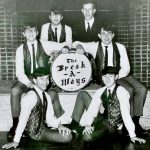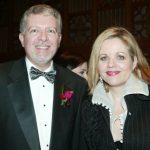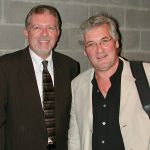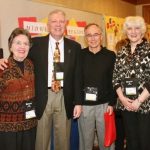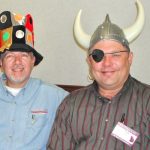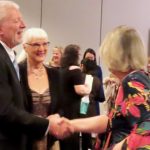Alan Solomon: Jazzy Music Therapist
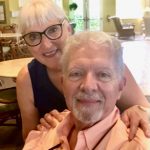 Our music therapy colleague Dr. Alan Solomon tells his AMTA-Pro podcast listeners his musical journey started as a result of his living in the same town as the Newport Jazz and Folk Festivals, events which inspired him to take guitar lessons. This opened the door to music experiences as a youngster, teen, and college student which eventually led to his becoming a music therapist. Alan has many stories to tell about his career as a musician, a clinician, and an educator as well as his active life as a retiree teaching online, spending time with families of their three sons, and teaching, composing, and playing acoustic fingerstyle guitar and traditional acoustic blues. The text accompanying this AMTA-Pro podcast includes some interesting photographs as well as a written informal biography in which Alan shares some more delightful stories about his adventures in music and music therapy over the years.
Our music therapy colleague Dr. Alan Solomon tells his AMTA-Pro podcast listeners his musical journey started as a result of his living in the same town as the Newport Jazz and Folk Festivals, events which inspired him to take guitar lessons. This opened the door to music experiences as a youngster, teen, and college student which eventually led to his becoming a music therapist. Alan has many stories to tell about his career as a musician, a clinician, and an educator as well as his active life as a retiree teaching online, spending time with families of their three sons, and teaching, composing, and playing acoustic fingerstyle guitar and traditional acoustic blues. The text accompanying this AMTA-Pro podcast includes some interesting photographs as well as a written informal biography in which Alan shares some more delightful stories about his adventures in music and music therapy over the years.

Alan Solomon: Jazzy Music Therapist
AMTA-Pro Podcast ~~ February 2022
Dr. Alan Solomon started his musical journey with guitar lessons as a youngster after hanging around the Newport Jazz and Folk Festivals in his home town. He joined a band in high school, a band that was eventually booked for a regular weekend gig at a club in Newport. The musicians in the Breakaway band were too young to enter the club as patrons, but they played on stage for three years. Over the years, Alan had an opportunity to play in some distinguished ensembles and to meet some extraordinary musicians. Pictures above are Alan with his band, with Renee Fleming, and with Pinchas Zukerman.
In this AMTA-Pro podcast, our music therapy colleague tells of music experiences as a youngster, teen, and college student which eventually led to his becoming a music therapist. Alan was involved in this professional field as a clinician and as an educator, and he was quite active over the with regional and national music therapy associations. Alan writes, “My greatest professional honors, both very humbling, were (1) to receive an AMTA Lifetime Achievement Award in 2004 and (2) to be invited, along with Ken Medema, to speak at the opening night presentation of AMTA’s 60th anniversary conference in 2010. This address was the first in the Carol Hampton Bitcon Speaker series and was titled Pioneers, Generations, and Memories: AMTA’s Diamond Anniversary.” These three snapshots provide a brief glimpse into many years with NAMT and AMTA.
In his “Informal Biography” below, Alan shares more delightful stories about his adventures in music and music therapy over the years as well as his active retiree life with family and music:
I am – not in any special order – a guitarist, guitar teacher, music therapist, music therapy educator, college music administrator, husband, father, grandfather, brother, uncle, and cousin to 31,240 people (according to the most recent count at Family Tree DNA). My professional titles include professor, doctor, dean, and Colonel (in Kentucky only!).
My wife Barbara and I will celebrate our 50th wedding anniversary in June 2023. We have been blessed with three incredible sons, three beautiful daughters-in-law, and four wonderful grands.
I was born in Brockton, Massachusetts in 1951 where my parents lived after my father returned from Asia where he served during WW II. Our family later moved to Newport, RI when my father took a new job, and it was during these years that I started taking private guitar lessons.
I attended Middletown (RI) High School and then went to the University of Rhode Island where I earned a Bachelor of Music degree with a flute major. I studied flute with Gregory Zeitlin (principal flute in the Rhode Island Philharmonic and former scholarship student of the renown Georges Barrère at the Julliard School of Music).
Barbara and I were married upon graduation from URI, and we left Rhode Island shortly thereafter to start our music therapy journey. Fortunately for me, Barbara was a Registered Nurse, able to find work wherever we went, and supported me while I was in school.
That journey started at the University of Kansas in the Fall of 1973. Upon my earning a master’s degree in music education and a music therapy equivalency three semesters later (and later a PhD in Music Education in 1985), we left for Connecticut where I completed a music therapy internship at Connecticut Valley Hospital, a state psychiatric facility in Middletown, CT. During the internship we were surprised to learn that we were going to be the parents of twins. Not surprised at how it happened, but at the timing.
Upon completing the internship, I accepted an offer to become a member of the music therapy staff at the hospital. This was very interesting work—sometimes sad, but always interesting. One such instance occurred when I took a group of patients to a summer music production of Godspell in New Haven. The excursion was fully approved and sanctioned by the Hospital, and I had the proper chauffeur’s license as required by the state.
Everything started smoothly. If you know “Godspell” you may remember that there is a female cast member who performs a sexy dance with a feather boa (everything going smoothly until that point). Then she decided to take the dance from the stage to the audience (not going so smoothly now). Then she decided to go down the row in which all the patients were sitting (getting much worse). Then she decided to sit in the lap of one of the male patients who I knew had an “interesting” history with women (full panic mode now). I mean, what are the odds of that happening?! So, I had to decide, very quickly, to either jump up and stop the production or hope and pray that the patient behaved himself. The wrong choice could have ended my music therapy career just as it was starting. So, I decided that since the psychiatrist gave him permission to attend the musical, I should have faith in his judgment and hope for the best–while still ready to pounce if necessary. Fortunately, the young man behaved himself. I was so relieved that we stopped at a Howard Johnson’s on the Connecticut Turnpike, and I bought them all ice cream.
My next position was in the Springfield, Massachusetts Public Schools. A very progressive special education program director was already mainstreaming students and hiring “specialists” in music, art, and physical education. Because I was the only music therapist in this large, sprawling urban school system it was important to the administration that I serve students in all seventeen schools each week. Sometimes that meant having only one session with an individual or group before jumping in the car and heading off to the next school. After this experience, the term “itinerant” never meant the same to me.
My next professional step was to teach music therapy at the college level. I started at the University of Evansville in 1977 and stayed there for 23 years which included 11 years as Chair of the Department of Music and one year at the University of Kentucky as an American Council on Education Fellow. My next, and last professional position was as Dean of the Crane School of Music at SUNY Potsdam in Potsdam, NY. I retired from that position in 2009 but continue to teach online courses for SUNY and IUPUI.
During my professional career I served in many different positions within NAMT and AMTA including on the Board of Directors, as Assembly Speaker, JMT Editorial Board, Parliamentarian, Historian, President of the GLR, and the like. My greatest professional honors, both very humbling, were (1) to receive an AMTA Lifetime Achievement Award in 2004 and (2) to be invited, along with Ken Medema, to speak at the opening night presentation of AMTA’s 60th anniversary conference in 2010. This address was the first in the Carol Hampton Bitcon Speaker series and was titled “Pioneers, Generations, and Memories: AMTA’s Diamond Anniversary.”
In 2001 I was commissioned by the Orpheus Trust to be the featured speaker at a symposium in Vienna on the life of Vally Weigl, an Austrian music therapist who left her homeland in advance of the invading Nazis. The name of my presentation was “Valerie “Vally” Pick Weigl: The American Music Therapy Experience (1938-82). It was translated into German and published in the symposium’s proceedings. I also published in various texts and journals including the Journal of Research in Music Education and the Journal of Music Therapy.
Today, in addition to teaching online courses, I continue to compose and perform acoustic fingerstyle guitar music and traditional acoustic blues. One example of sharing music is making a recording of an old acoustic Vestapol blues tune and sending it to friends during the pandemic lockdowns when people were looking for ways to pass the time. I no longer care to schlep my three performance guitars, amplifier, guitar stool, and other paraphernalia around with me, so now I give recitals in my home to family, friends, and neighbors where we can seat between 25-30 people at a time.
Alan Solomon
February 2022
